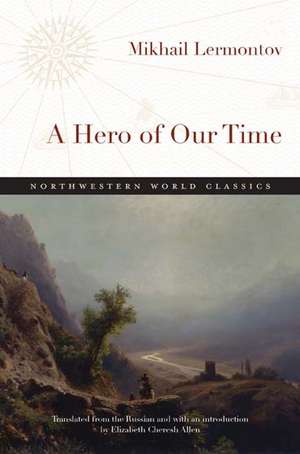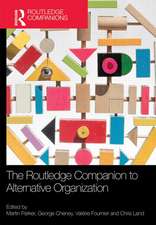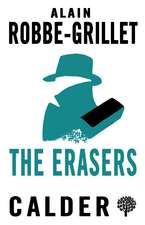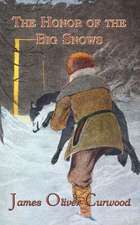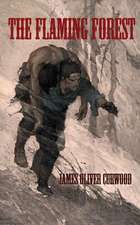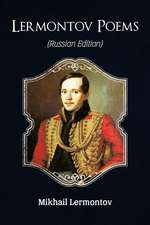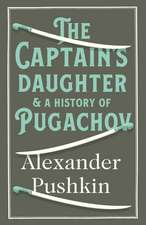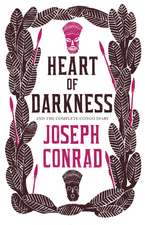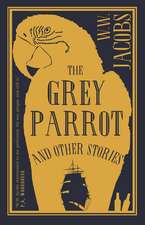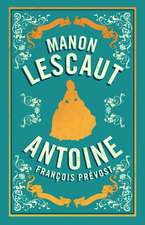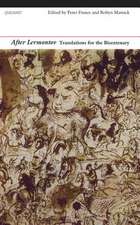A Hero of Our Time: Northwestern World Classics
Autor Mikhail Lermontoven Limba Engleză Paperback – 15 aug 2016
Translated from the Russian by Elizabeth Cheresh Allen
Mikhail Lermontov’s A Hero of Our Time was the first modern Russian novel. Published in 1840, it set a model of penetrating observation and psychological depth that would come to typify Russian literature. Its "hero," Grigorii Pechorin, also established a character type that became known in Russian fiction as "the superfluous man"—widely familiar from Dostoevsky’s Notes from Underground. At once driven by pride and wracked by self-doubt, both shockingly self-revealing and blindly self-deceived, he flounders to affirm himself in a social world he despises yet yearns to dominate. Pechorin is a troubling and unforgettable character. And A Hero of Our Time, which has provoked much controversy, is a novel not only central to Russian literature but fundamental to the Western literary tradition of the antihero.
Mikhail Lermontov’s A Hero of Our Time was the first modern Russian novel. Published in 1840, it set a model of penetrating observation and psychological depth that would come to typify Russian literature. Its "hero," Grigorii Pechorin, also established a character type that became known in Russian fiction as "the superfluous man"—widely familiar from Dostoevsky’s Notes from Underground. At once driven by pride and wracked by self-doubt, both shockingly self-revealing and blindly self-deceived, he flounders to affirm himself in a social world he despises yet yearns to dominate. Pechorin is a troubling and unforgettable character. And A Hero of Our Time, which has provoked much controversy, is a novel not only central to Russian literature but fundamental to the Western literary tradition of the antihero.
| Toate formatele și edițiile | Preț | Express |
|---|---|---|
| Paperback (7) | 47.61 lei 10-16 zile | +16.80 lei 4-10 zile |
| Oxford University Press – 11 apr 2013 | 47.61 lei 10-16 zile | +16.80 lei 4-10 zile |
| Alma Books COMMIS – 16 noi 2016 | 51.38 lei 3-5 săpt. | +9.33 lei 4-10 zile |
| Quercus Books – 24 oct 2024 | 51.45 lei 3-5 săpt. | +23.66 lei 4-10 zile |
| Penguin Books – 26 aug 2009 | 52.16 lei 24-30 zile | +17.40 lei 4-10 zile |
| Northwestern University Press – 15 aug 2016 | 93.37 lei 3-5 săpt. | |
| KUPERARD (BRAVO LTD) – 8 feb 2004 | 119.20 lei 3-5 săpt. | |
| Echo Library – 24 apr 2016 | 91.78 lei 38-44 zile | |
| Hardback (1) | 80.92 lei 24-30 zile | +30.56 lei 4-10 zile |
| EVERYMAN – 4 iun 1992 | 80.92 lei 24-30 zile | +30.56 lei 4-10 zile |
Preț: 93.37 lei
Nou
Puncte Express: 140
Preț estimativ în valută:
17.87€ • 19.42$ • 15.02£
17.87€ • 19.42$ • 15.02£
Carte disponibilă
Livrare economică 31 martie-14 aprilie
Preluare comenzi: 021 569.72.76
Specificații
ISBN-13: 9780810133518
ISBN-10: 0810133512
Pagini: 184
Dimensiuni: 130 x 197 x 15 mm
Greutate: 0.18 kg
Ediția:1
Editura: Northwestern University Press
Colecția Northwestern University Press
Seria Northwestern World Classics
ISBN-10: 0810133512
Pagini: 184
Dimensiuni: 130 x 197 x 15 mm
Greutate: 0.18 kg
Ediția:1
Editura: Northwestern University Press
Colecția Northwestern University Press
Seria Northwestern World Classics
Notă biografică
MIKHAIL LERMONTOV (1814–1841), soldier, socialite, and author, gained early fame as a lyric poet in the Byronic vein. He then wrote a few works of prose and drama. But he won historical renown as author of his only novel, A Hero of Our Time, published a year before he was killed in a duel.
ELIZABETH CHERESH ALLENis a professor of Russian and comparative literature at Bryn Mawr College and the author of, among other works, A Fallen Idol Is Still a God: Lermontov and the Quandaries of Cultural Transition.
Cuprins
Acknowledgments
Translator's Introduction: Taking Apart Pechorin
A Note on the Translation
The text:
Part One
Bela
Maksim Maksimych
Pechorin's Journal: Introduction
Taman
Part Two
Princess Mary
The Fatalist
[From the Author]
Translator's Introduction: Taking Apart Pechorin
A Note on the Translation
The text:
Part One
Bela
Maksim Maksimych
Pechorin's Journal: Introduction
Taman
Part Two
Princess Mary
The Fatalist
[From the Author]
Recenzii
“For those who love nineteenth-century Russian novels, Lermontov’s A Hero of Our Time is a discovery waiting to be made. Allen's authoritative new translation affords an excellent opportunity for making that acquaintance." —Cathy Popkin, editor of the Norton Critical Editions of Anton Chekhov'sSelected Stories and author of The Pragmatics of Insignificance: Chekhov, Zoshchenko, Gogol
Descriere
Mikhail Lermontov’s A Hero of Our Time was the first modern Russian novel. Published in 1840, it set a model of penetrating observation and psychological depth that would come to typify Russian literature. Its "hero," Grigorii Pechorin, also established a character type that became known in Russian fiction as "the superfluous man"—widely familiar from Dostoevsky’s Notes from Underground. At once driven by pride and wracked by self-doubt, both shockingly self-revealing and blindly self-deceived, he flounders to affirm himself in a social world he despises yet yearns to dominate.
Caracteristici
One of the most important classics from Russian literature
